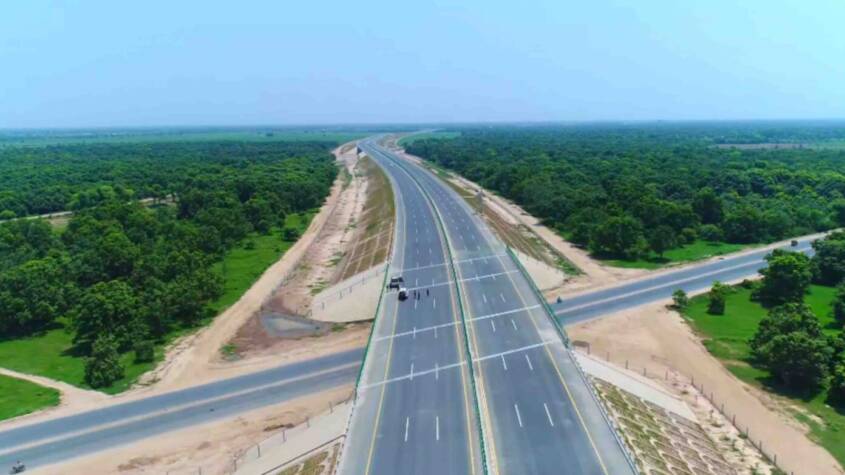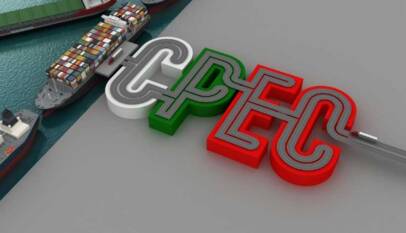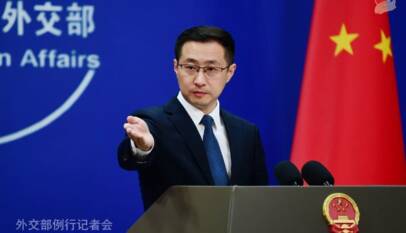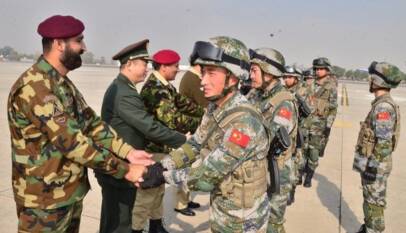Pakistan, China in talks to integrate Sukkur-Hyderabad Motorway into CPEC
Consultations are underway between Pakistan and China to include the Sukkur-Hyderabad Motorway (M-6) in the China-Pakistan Economic Corridor (CPEC) to secure concessional financing for the Rs308 billion project. The motorway, a missing link in the Peshawar-Karachi Motorway, is expected to begin feasibility work in December and be completed in 30 months. The National Assembly Standing Committee on Planning also raised concerns about motorway safety, resource allocation, delays in public works, and the management of funds, calling for greater accountability and transparency across national development initiatives.
ISLAMABAD – Consultations of Pakistan and China are underway to include the Sukkur-Hyderabad Motorway (M-6) in China-Pakistan Economic Corridor (CPEC).
Sukkur-Hyderabad Motorway is prioritised for inclusion in the China-Pakistan Economic Corridor (CPEC) to secure concessional financing for the project, said chairman National Highway Authority (NHA) while briefing the National Assembly Standing Committee on Planning, Development and Special Initiatives.
The National Assembly Standing Committee on Planning, met under Syed Abdul Qadir Gillani, was informed by Chairman National Highway Authority (NHA), Sheryar Sultan, that a link of Peshawar-Karachi Motorway, Sukkur-Hyderabad Motorway is missing. Consultations with China are on-going to include Sukkur-Hyderabad Motorway in CPEC.
The consultant will start feasibility work on M-6 in December. Another motorway will be built to connect Karachi to Hyderabad, he added.
imated cost of Sukkur-Hyderabad Motorway is Rs308 billion and it will be completed in 30 months. The committee raised concerns regarding motorway safety and the equitable allocation of resources across regions. As a result, the committee decided to hold an exclusive briefing on CPEC in the future. The meeting addressed key concerns regarding the performance of the Pakistan Public Works Department (PWD) and other national development initiatives.
The committee expressed dissatisfaction with the PWD’s role in executing and overseeing development projects, highlighting delays, budgetary cuts, and the shelving of projects as persistent issues. Members raised concerns about the management of allocated funds, citing instances of corruption, poor implementation, and disparities in fund distribution. With the responsibility for PWD projects being transferred to the provinces and allocations coming from the Cabinet Division, the committee questioned the handling of incomplete projects and unreleased funds. They emphasised the need for accountability and transparency, calling for a detailed briefing from the PWD in the next session and stressing the importance of investigating these issues to ensure fair and efficient management of public resources.
The committee also reviewed delays in the Ministry of Health’s project to provide free essential medicines to cancer patients, supported by a pharmaceutical company. The Ministry of Planning reported that due to late submission by the Ministry of Health, the project was not included in the current year’s Public Sector Development Programme (PSDP) and will now be deferred to the next cycle. The committee emphasised the importance of immediate follow-up to ensure this critical initiative is not further delayed and urged the relevant authorities to expedite the approval process to ensure timely provision of free cancer treatment.
Secretary Planning Awais Manzoor while briefing the committee said that in previous fiscal year, Rs91 billion were allocated for the social action programme (SDGs) for the parliamentarian schemes. In the first phase, Rs61 billion were released for the SAP programme. However, no further amount was released as the PSDP was reduced to Rs744 billion from Rs950 billion. For the ongoing fiscal year, Rs75 billion have been kept for SDGs in PSDP, but this PSDP has been reduced from Rs1,400 billion to Rs1,100 billion. He said that it is unknown what will be the volume of PSDP for FY 2024-25, because there is a fear of further cuts in the development budget in this situation. It will be difficult to get full releases for the parliamentarians schemes during the ongoing fiscal year. This issue should be raised in the meeting of the committee headed by the Deputy Prime Minister.
CPEC’s Success Story: $25 Billion Invested Across 38 Completed Projects
ISLAMABAD: A total of 38 projects worth over $25 billion have been completed and 23 develo…












